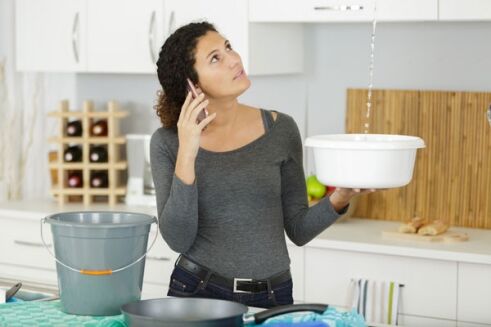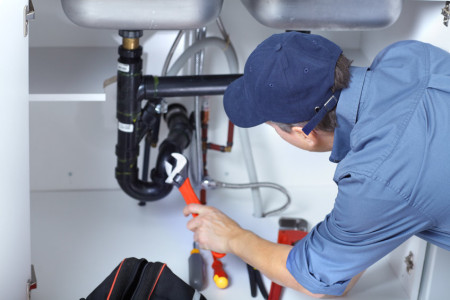On this page underneath you might get lots of first-rate additional info related to Expert Tips for Emergency Plumbing Repairs.

Plumbing emergencies can strike any time, creating anxiety and prospective damage to your home. Whether it's a burst pipeline, a blocked drain, or a leaky tap, recognizing exactly how to manage the situation till an expert plumbing arrives can conserve you from more issues. This short article provides crucial emergency situation plumbing tips to aid you alleviate damage and reclaim control throughout a plumbing situation.
Switch off the Supply Of Water
The first step in any kind of plumbing emergency is to shut down the supply of water. For localized concerns, such as a leaking tap or bathroom, switch off the valve near the component. When it comes to a major leakage or burst pipeline, find your home's main water shut-off shutoff and turn it off quickly. Understanding the location of these shutoffs in advance can conserve important time throughout an emergency situation.
Shut Off Your Hot Water Heater
In certain emergency situations, such as a burst pipeline, it's a good idea to shut down your water heater. This protects against overheating or damages to the system when water quits streaming. Switch off the power supply to the water heater (electrical or gas) and let it cool to avoid possible hazards.
Briefly Stop a Burst Pipeline
A burst pipeline can lead to considerable water damage in minutes. To minimize the problem:
Call an expert plumbing professional immediately to attend to the trouble permanently.
Have an Emergency Pipes Kit
Prepare a fundamental pipes emergency situation kit to deal with small concerns efficiently. Your set needs to include:
Having these tools handy can make a substantial distinction in your capacity to manage emergencies.
Unclog Drains Pipes Securely.
A clogged up drain can be an aggravating and untidy concern. Below's just how to tackle it:.
If these techniques don't work, prevent utilizing extreme force, as it may intensify the blockage.
Manage Overflowing Toilets.
An overflowing toilet can cause immediate chaos. Here's what you should do:.
Address Tiny Leakages with Short-term Fixes.
Tiny leakages can swiftly become significant troubles if left untreated. Utilize these temporary solutions till expert help gets here:.
While these fixes aren't irreversible, they can assist minimize water loss and damages.
Deal With Frozen Piping Very Carefully.
In colder environments, frozen pipelines are a typical emergency. If you presume a frozen pipeline:.
Know When to Call a Specialist.
While quick fixes can help momentarily, certain pipes issues call for instant specialist attention. Call a plumbing professional if:.
Immediately contacting a specialist guarantees the issue is fixed properly and prevents additional difficulties.
Prevent Additional Damages.
Taking fast action to lessen damages can conserve you time and money over time. Here's exactly how:.
Conclusion.
Plumbing emergencies can be overwhelming, however with the appropriate expertise and devices, you can manage the situation efficiently up until assistance gets here. By switching off the water, addressing small leakages, and making use of short-lived solutions, you can decrease damages and keep your home safe. Remember, these tips are temporary solutions; always speak with a certified plumbing to deal with the source of the issue. Preparation and quick thinking are your best allies in any plumbing emergency situation.
8 Helpful Tips for Managing Plumbing Emergencies at Home
If your plumbing system hasn’t failed once, wait for it because almost everyone has a story to tell. Sometimes, it could be simple emergencies such as a leaking pipe, a blocked cistern, or even a big burst pipe. In situations like this, you need to have some handy tips to save you some money and from possible damages.
Take care of minor issues early.
Sometimes, you could have avoided an emergency by taking proactive measures while it was still early. Some major plumbing emergencies can be a result of an ignored minor issue. We recommend that you have items like plumbing tapes and other related items. A plumbing tape can allow you to manage minor leaks before the plumber arrives.
Cut off the water supply.
This tip is essential in almost any type of leakage problem. For problems like minor leakages in the toilet or kitchen, turn off the supply that takes water to the affected pipes. If the leakage is a major pipe, you must shut off the supply valve to the entire building. This will help you avoid flooding your home and neighbors if you share a flat.
Know your plumbing system
Folks typically move into a new apartment without understanding the water supply around the building. This can prove disastrous if a water emergency arises and the plumber is far away. The previous tip will prove useless if you don’t practice this one. More importantly, know where your water shut-off valve is located – you’ll need that knowledge to prevent potential home floods.
Have some common handy tools
There are lots of plumbing emergencies that you can handle without hiring a plumber. That’s why you must keep some tools available always. Some tools that you can use to fix simple plumbing emergencies easily include plumbing tapes, screwdrivers, thread seal tapes, plungers, pliers, tape measures, and rubber gloves.
Insulate your pipes from cold
You’ll save yourself from many plumbing expenses if you protect your water pipes from the cold. This is because of the harmful effects that cold weather can have on your pipes. During winter, your pipes can burst from being overly expected to freezing temperatures. So, make sure insulators are there to keep the pipes working correctly.
Avoid practices that will clog your toilet.
Many people indulge in practices that can damage the plumbing system of the entire building. One of these is when they use their toilet to dispose-off garbage. They flush all kinds of things, such as paper towels, bandages, hairs, female sanitary products, etc., down the toilet. This will block your toilet in the long run, incurring unnecessary expenditures. Dump such waste in the trash instead.
Check your dials regularly.
Sometimes, there could be leakages in your home without noticing them in time. So, constantly monitor your water meter dial. If the dial is reading when there is nobody using water, this is an indicator that there is leaking. Check for leaks immediately. Call a plumber as soon as possible if you can’t find any.
https://www.constructionplacements.com/8-helpful-tips-for-managing-plumbing-emergencies-at-home/

I recently found that content on Plumbing Emergencies: Tips on What To Do Before while looking around the internet. Sharing is nice. Helping people is fun. I value reading our article about .
Free Quote